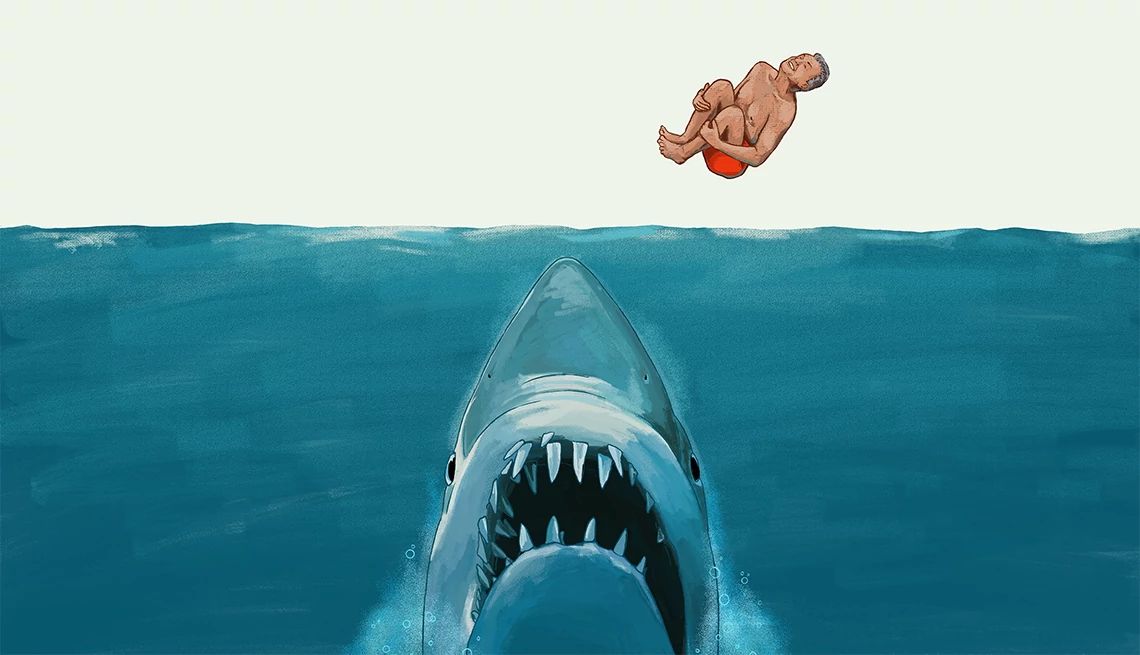AARP Hearing Center


When I first saw Jaws in the theaters as a kid — it opened across the U.S. 50 years ago, on June 20, 1975 — it terrified me. For years afterward, I anticipated a shark attack while swimming in any body of water, including public pools. But something peculiar happened when I recently watched the movie again. (It started streaming on Peacock on June 15 and will return to theaters in late August.)
Based on the 1974 bestselling novel by Peter Benchley, director Steven Spielberg took this tale of a man-eating great white shark plowing through a human buffet in a fictional East Coast beach town and turned it into what Quentin Tarantino called “the greatest movie ever made.” But it isn’t just a beautifully crafted creature film. It’s also chock-full of wisdom about aging. I somehow missed that when I was 10 years old. Go figure. But now, the film’s life lessons resonate, and watching the closing credits roll, I felt more comfortable in my middle-aged skin than I have in a while. (And I’m not scared to go into the water anymore.)
Here are just a few of the aging secrets I discovered in Jaws.
1. Do the thing that scares you
Does Police Chief Martin Brody (played by Roy Scheider) want to venture out into the ocean in a rickety ship to hunt down a flesh-hungry shark? Heck no! As his wife said: “Martin hates boats. Martin hates water. Martin sits in his car when we go on the ferry to the mainland.” But he doesn’t let his crippling fear of all things aquatic stop him from doing what needs to be done.
Remember that scene late in the film, when Brody finally sees the shark lunge out of the water, and he backs away, petrified? That’s the exact expression I make when my doctor walks in with my blood test results. We might not be dealing with man-eating sharks, but when you hit middle age, you have to face down things that can seem just as scary. And just like Brody, you may discover you’re braver and more resilient than your worried brain had you believe, and fully capable of meeting whatever challenge is coming.
2. Work with what you have
After seeing how massive the shark actually is, Brody mutters to Quint, “You’re gonna need a bigger boat.” It’s one of the most repeated lines from the film. Even my dad, when packing for family vacations and realizing there were too many suitcases to squeeze into our Gremlin hatchback, would quip, “We’re going to need a bigger boat.” But he was missing the point — the lesson is not about the need to upsize.






































































You Might Also Like
Life Lessons Learned From ‘Star Wars’
Now 45, ‘The Empire Strikes Back’ still has lessons to teach
Harrison Ford's Wisdom on Aging Gracefully
Insights on aging from the star of 'Shrinking' and classic filmsTim Allen’s Guide to Being a Dad
The ‘Shifting Gears’ star shares the ups and downs that made him a better dad